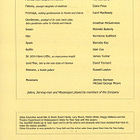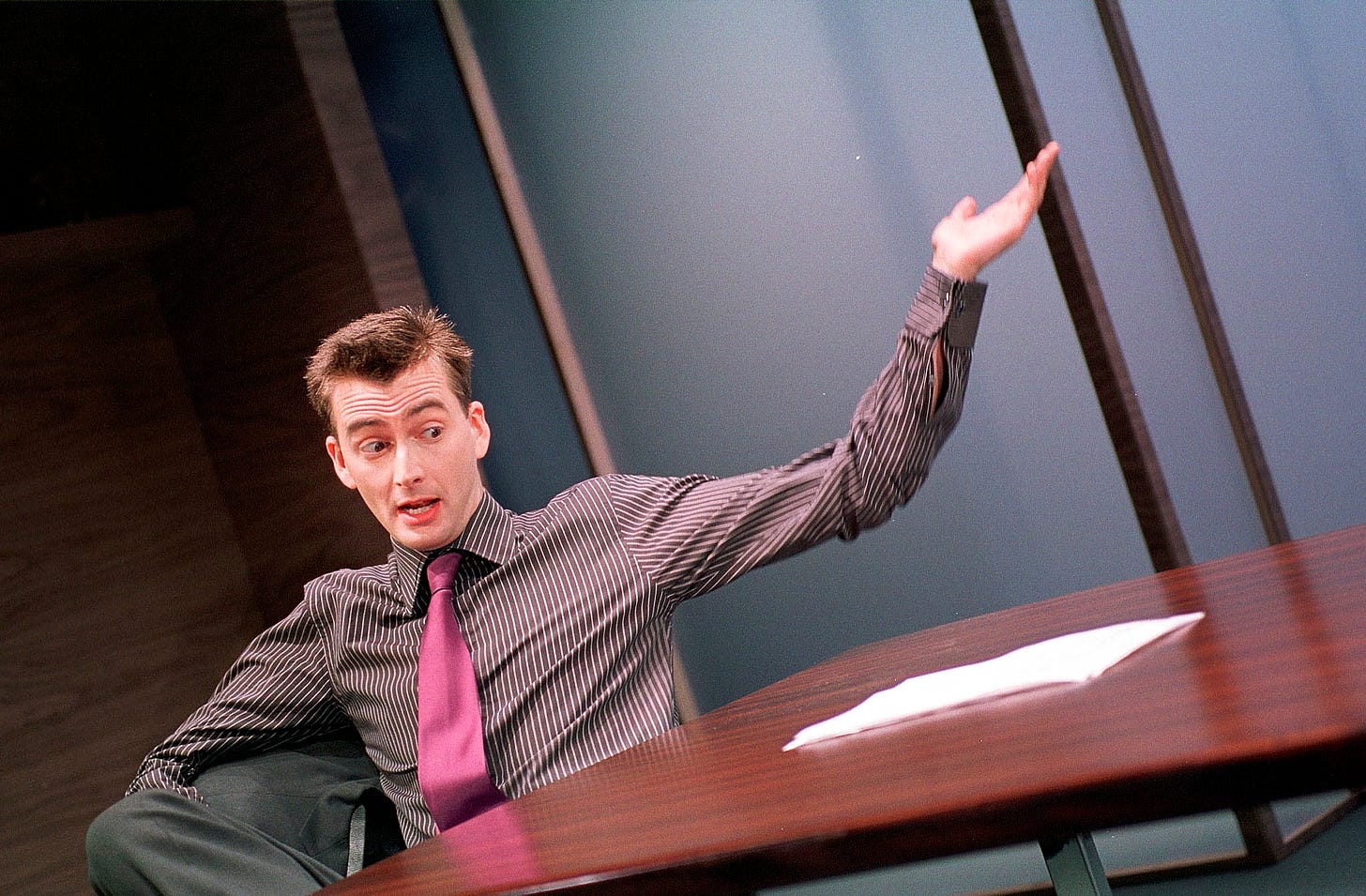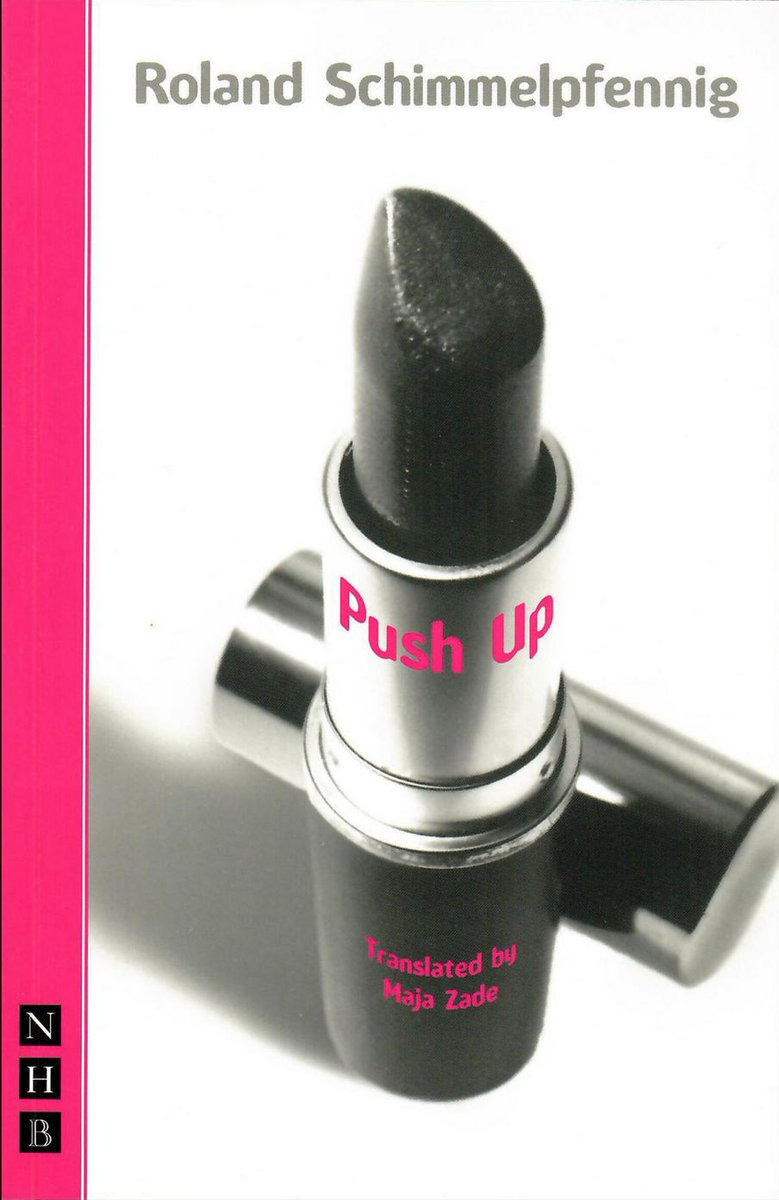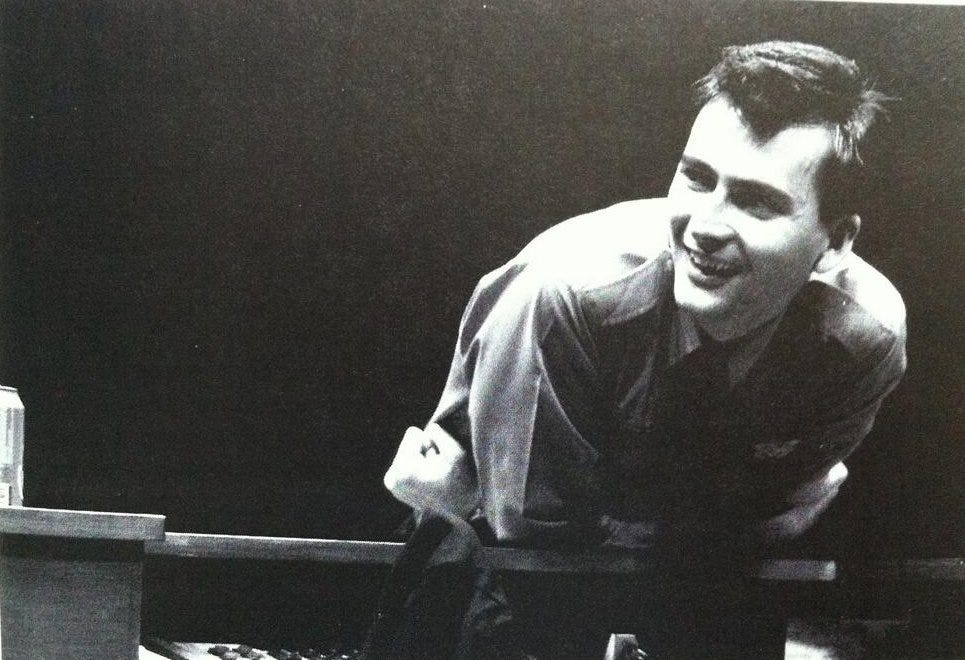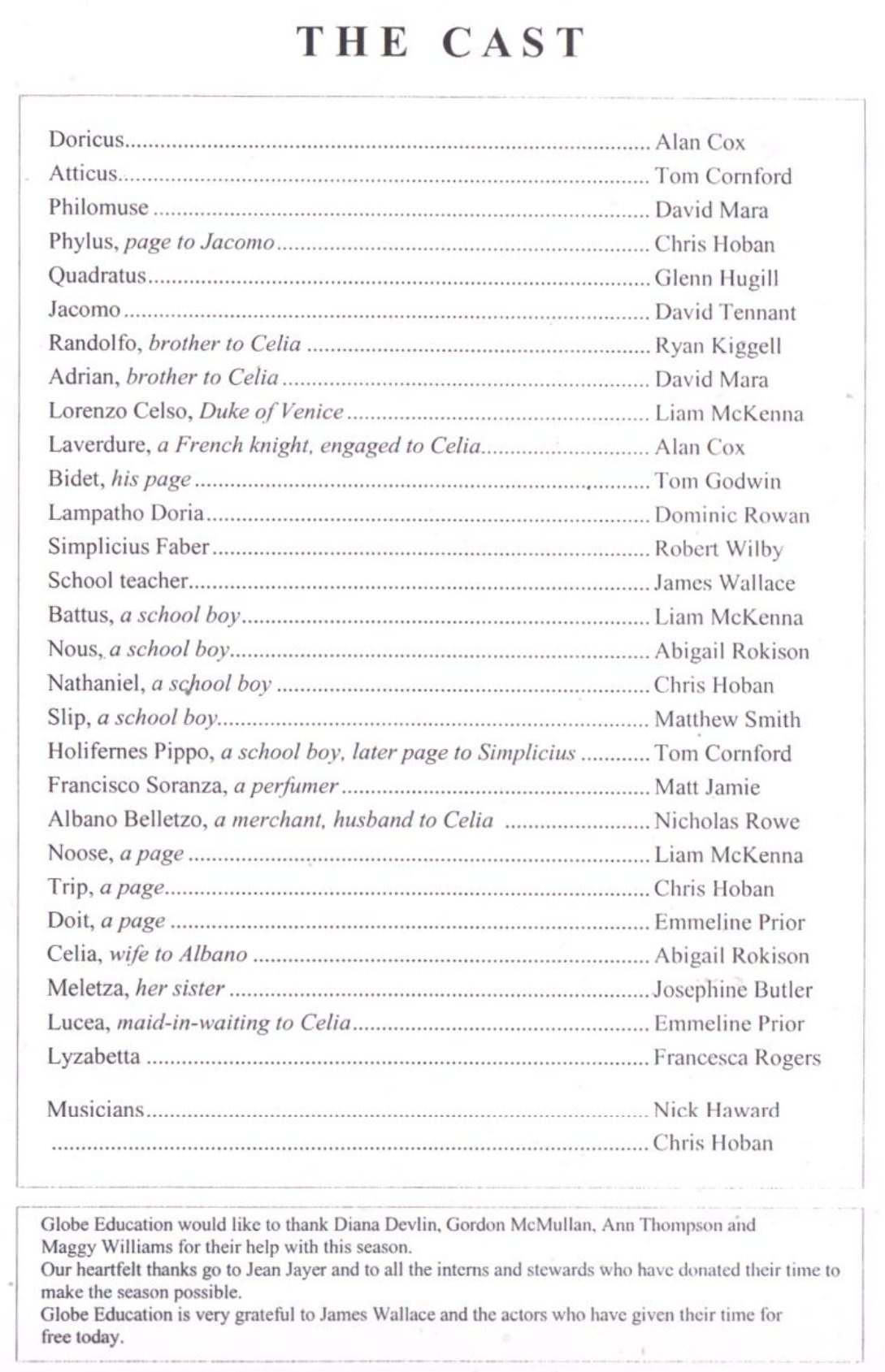The 'Read Not Dead' Series, Pt. 3: David Tennant, Staged Readings at The Globe, and 'What You Will' (2002)
Okay - I promised to fill everyone in on the two unattributed plays David did for the Globe’s Read Not Dead project, didn’t I? So I’ll begin the first never-before-talked-about-in-the-fandom play right now. If you want to catch up on the first two parts and understand a little bit of the history behind the Read Not Dead project before diving into this one, go here for the first part:
And here for the second part:
And then come on back!
The second and third of the four Sunday afternoon staged readings David did while working with the Globe’s Read Not Dead (heretofore called RND) project were written by the same author: John Marston. But before we get into the plays themselves, let’s take some time to learn a little about John Marston.
Marston was an English playwright whose best known work is 1604’s The Malcontent. He began writing in 1598. Much of his work was written for the boy’s theatre company Children of Paul’s and for the Blackfriars. If you went back to one of my previous posts about the Read Not Dead project and David’s involvement in their staged reading of 1606’s The Fleer by Edward Sharpham, you’ll recall reading a bit about the Blackfriars (but if not, they were the Blackfriars Children, a theatre company wholly made up of boy actors.) Anyway, John Marston was a Blackfriars shareholder.
Marston’s plays were very popular. He was a consummate satirist who made sure to include lust, violent imagery and impropriety in almost every play he wrote - his poetry was burned by church order! He even dared to satirize the King (though he had to apologize for that of course!) His satirical, critical work caused many a political scandal. Eventually in 1608 Marston was sent to Newgate Prison. After his release, he decided to abandon the theatre, move out of London, and take holy orders. He died in 1634, and to our knowledge never wrote another play. ( As an aside, I encourage you to learn more about Marston. As well as being a contemporary of Shakespeare, he’s quite the fascinating character! Here’s a good start.)

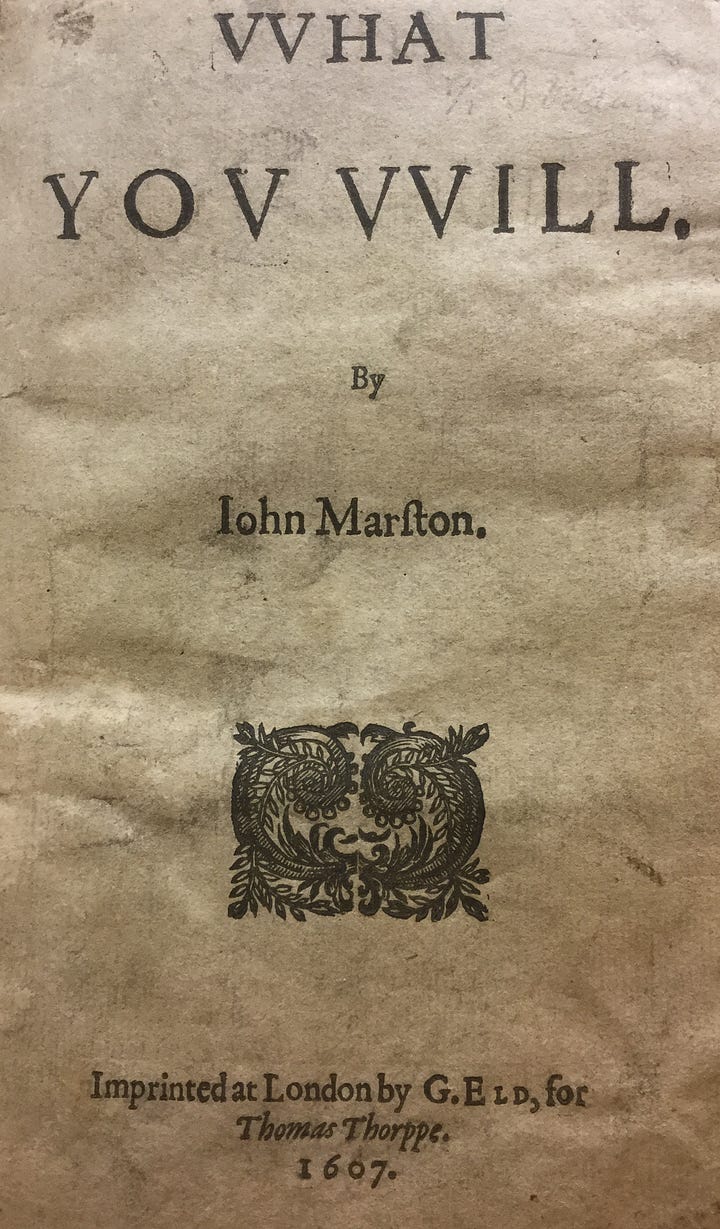
Okay. Let’s go back to the “present” of 2002.
David was a busy boy! He began 2002 starring as Robert in Push Up, an ensemble play about ambition at work. Written by Roland Schimmelpfennig and directed by Ramin Gray, it opened 8 February 2002 at the Jerwood Theatre at the Royal Court.
Push Up was a vignette-style play, and The Telegraph had this to say about it:
“The meat of this 90-minute play consists of three edgy, aggressive dialogues between rivals in the firm.” David played Robert, who “turns down a proposal from Patrizia for a new TV ad, identical, it turns out, to the one we have already heard described, except that the puddle is now located in New York’s Central Park. The fact that these two once had great illicit sex together in Kramer’s office, and were both too proud to contact the other afterwards, merely adds to their animosity.”
(FYI, I’ve listened to an audio recording of this play, as it’s archived at the British Library. It’s stellar!)
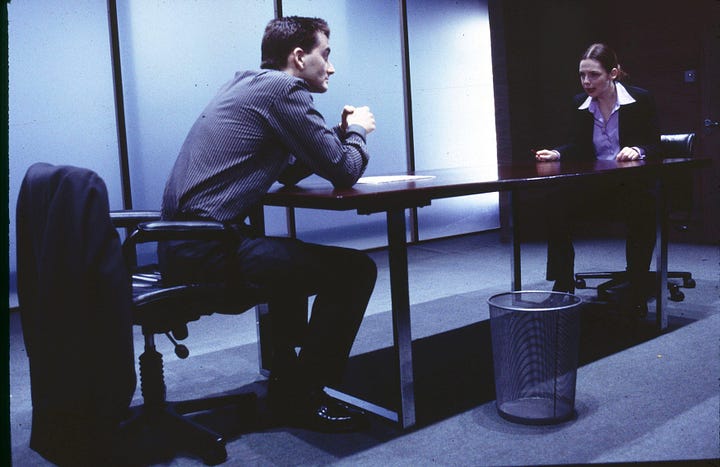
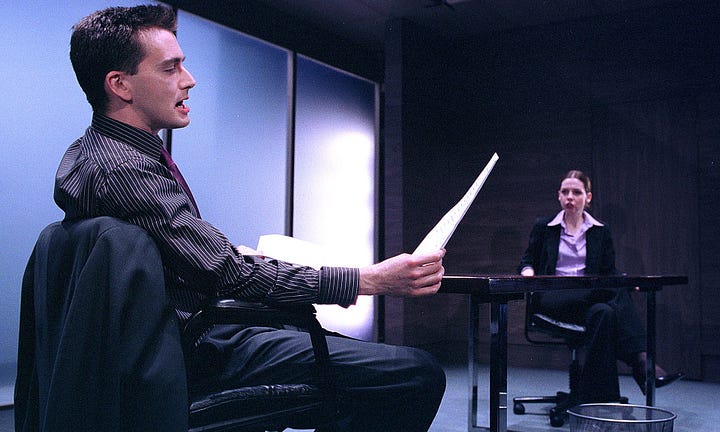
If you’ve read my previous posts, you’ll recall David’s first reading with RND was 1999’s Edward III and his last was 2004’s The Fleer. But now we’re in 2002. And David hadn’t done another staged reading with RND since 1999. But that was about to change.
Reviews for Push Up were very favorable. The acting was called outstanding, David’s was called “a fine performance”, and one reviewer said the “undertow of lust between Tennant and [co-star Jaqueline] Defferary [was] particularly riveting.” Push Up’s run ended in March 2002.
(Oh…I asked director Ramin Gray if there had ever been a programme for Push Up. He told me a printed edition of the play text with the cast list was available, but as far as he was aware, an official Royal Court programme wasn’t made for the run. Published by Nick Hern Books, you can find it on Amazon.)
A month later (April 2002) David was treading the boards again as young security guard Jeff in Lobby Hero by Kenneth Lonergan. Set in the lobby of a middle-income Manhattan high rise, the play presented moral dilemmas about things like culpability, justice, and the dangers of truth. Lobby Hero opened at the Donmar from 10 April 2002 to 4 May 2002, then reopened at the New Ambassadors Theatre from 1 July 2002 to 10 August 2002. During its run, the play (& DT!) got rave reviews. It earned David a Olivier nomination for Best Actor, and the play for Best New Comedy.
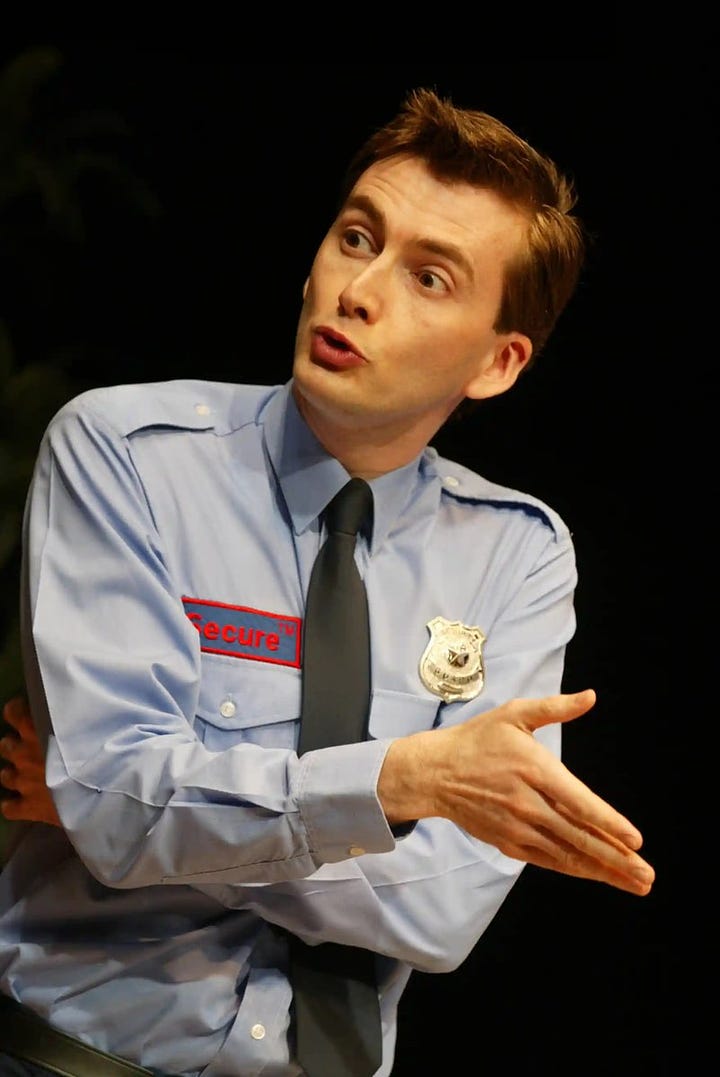
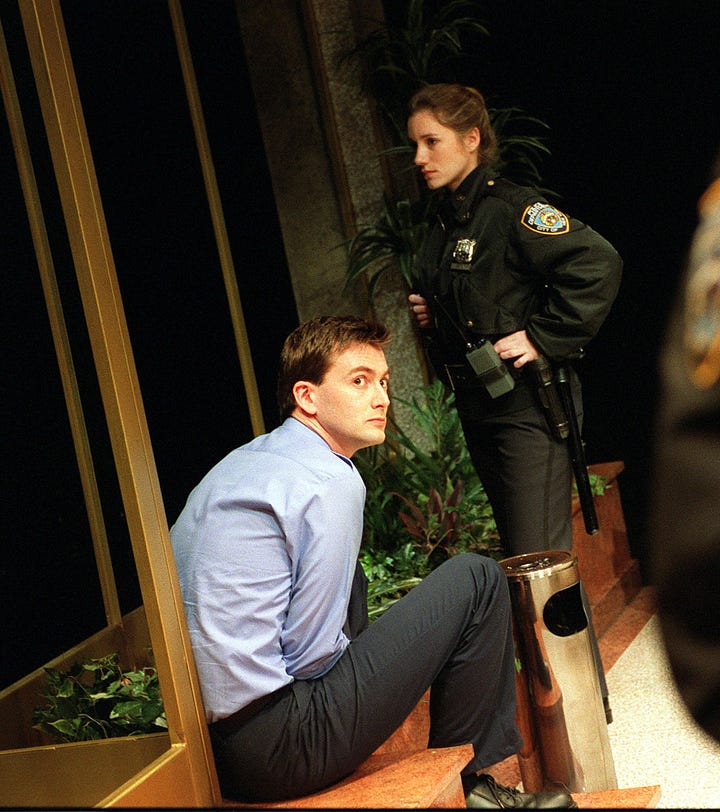
David was probably riding a bit high. Push Up had done well and he’d immediately gone to do Lobby Hero, which was generating awards buzz. But did you notice something about the Lobby Hero dates? David had a month off between runs. And he didn’t just sit around twiddling his thumbs – nope nope nope – because we all know twiddling has never been David’s style.
So on 26 May 2002, David showed up once again to participate in RND. This time it was for a comedy called What You Will, which the aforementioned playwright John Marston likely wrote around 1601 but which was not published until around 1607. What You Will was written while Marston was duking it out (in literary-fashion) with a contemporary writer called Ben Jonson. To say the two men didn’t like each other was an understatement. They traded satirical jabs and placed caricatures of each other in their plays. And oh….if the play’s title feels vaguely familiar to you, you’re not wrong there either! Marston pinched the name of the play from a little old thing you might’ve heard of called Twelfth Night, written by some fellow called Shakespeare.
What You Will was full of song, music and dance, as it had been written for a children’s theatre company. It had a large number of younger parts - pages and the like, and women - for the boys to fill (as I’m sure you’ll recall, at this time women’s roles were played by men and boys.) In addition to the music, it was also a satire as well as a romantic comedy. Set in Venice, it tells the story of Celia, who believes her husband drowned in a shipwreck. She plans to marry, but another of her suitors, Jacomo, schemes with her family to prevent this. David played the role of Jacomo.
And here’s the cast list - again, all thanks and credit for the digitized list goes to the Globe Archives!
Here’s a more in-depth look at the plot, and here’s a link to the full text of the play, if you’re interested.
This performance was recorded, though I haven’t listened to it (and sadly, the archive notes the last part of the audio is cut off.) You can listen to the recording of the performance and others from the series, as the recordings are archived in the Globe Archive and Library in London. Access to the archive is available by appointment only for professionals and academics affiliated with institutions of higher education.
So on that Sunday in 2002, David joined in to perform the satirical musical romantic comedy What You Will, directed by James Wallace. And speaking of musical parts - there was singing and dancing to do, scripts in hand. And Jacomo had at least one song to sing!
I’m sure many of you have wondered whether David’s done any honest to goodness musicals during his career. Well, I’m here to tell you that while he’s burst into song relatively recently and briefly with Don Juan In Soho and Good, and quite possibly with What You Will as well (I haven’t listened to the recording of the play to see if David actually sang) - I can provide a partial answer to that question.
In a previous interview he mentioned an early play he did in drama school called The Hired Man, and said he was a member of the chorus. Yes, that’s true, he was, and yes, he did sing in that 1989 production (listen here to hear him sing part of what he sang then.) So he’s certainly flirted with the genre. But as I’ve done much research into those early days of his, there miiiiiight be a few other productions in which he sang.
*ahem* I’m just sayin’.
All that comes later. For now, here ends the tale of What You Will.
But don’t despair - I mentioned earlier we’ve got one more staged RND reading of David’s to explore, and I hope you’ll tune in to hear about it, too!






